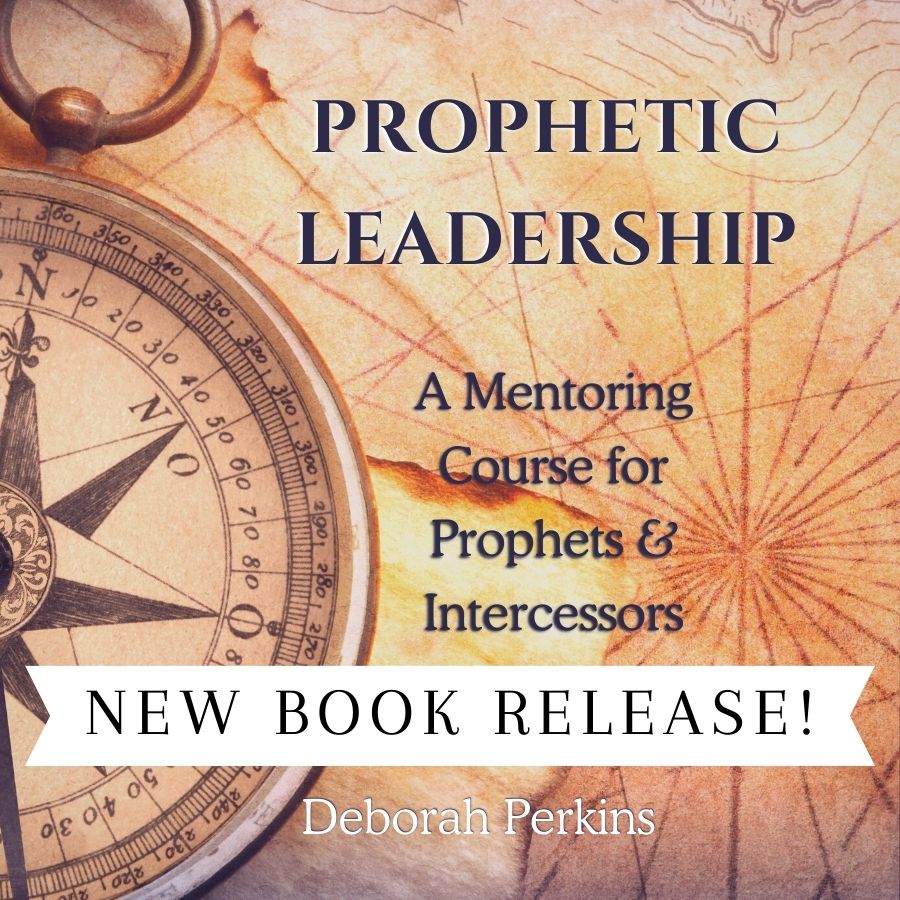|
When Jesus needed to amplify His voice, He stepped into a boat and used the water as His "loudspeaker" (Mark 4:1). When God wants to reach the multitudes today, He often broadcasts one message through several different speakers. I don’t know if you’ve noticed, but God has been broadcasting the message of GRACE on various channels, from the East Coast to the West. I am hearing about grace everywhere I go! Despite all of our divisions and denominations, the great test for every Christian is the test of love. Can we love without judging, when our brother believes differently than we do? Can we rejoice in the preaching of the gospel by those "less qualified" than ourselves? Can we allow for differences of opinion and interpretation while still agreeing on the essentials of the faith? This is the great test for every Christian: not simply to preach the gospel ourself, but to allow others to preach Christ in the knowledge they have attained, however limited. Paul recognized this in his letter to the Philippians. Instead of being upset by those who preached Christ out of "selfish ambition" or even contention, he rejoiced that the gospel was being preached at all! (See Philippians 1:15-18). Sometimes, even those who attack our faith end up drawing more attention to it, instead of causing its demise. The plight of Kim Davis, a town clerk in Kentucky (who refused to issue marriage licenses to same-sex couples), is a good example of this. As Christians, whether we believe her course of action is right or wrong, we should still rejoice that attention is being drawn to the gospel, forcing people to re-evaluate what they believe and to dig deeper to find out what the Bible says about such issues. The simple, timeless truth is that we are not called to be masters of theology, but to master love for our neighbors. The golden rule of Christianity applies to everyone, not just to some. When we become absorbed in semantics and arguments over words, we have lost the essence of the gospel message. Each of us must walk with God to the degree or level that we have attained, says Paul, making sure that we share the unity of mind that characterizes mature believers. (See Philippians 3:16). It is up to God to reveal the areas where we are in error or where our beliefs do not fully coincide with Scripture. (Philippians 3:15). Does this mean we cannot bring correction to our brothers and sisters in Christ? No, but the manner in which it is done must be loving, and it is best done only at the Lord's leading. We tend to err on the side of judging too quickly, rather than seeking God's heart for the growth and benefit of others. Paul's response to the schisms or immaturity of fellow Christians was to pray for both knowledge and love: And this I pray, that your love may abound
If we follow Paul's example and take our concerns to the Lord in prayer, we will find that God takes away our desire to judge and replaces it with a sincere concern for others. Love covers offenses. Love may also confront when offended, but makes sure to guard the relationship in the process, rather than burning the bridge.
No matter what issues arise in the coming days, the greatest test will still be the test of unconditional love. This kind of love IS possible, despite our human flaws, when we stop jealously guarding our "corner" of the truth and allow God to be God, perfecting and refining each one of us in the true knowledge of Him.
Deborah Perkins is passionate about connecting others with God. She writes about knowing God and hearing His voice at HisInscriptions.com. Follow her on Twitter and Facebook, or contact her directly here.
A Tennessee school district bans the American flag from being displayed on student vehicles. Planned Parenthood secretly profits from the harvesting of unborn fetal tissue. A judge orders a Christian bakery to pay a penalty for their decision not to bake an LGBT cake. The issues surrounding us in our world today are unbelievable almost, overwhelming. What should we do? Or in the words of the late Francis Schaeffer, “How Should We Then Live?*” Would you go to church naked? No? Maybe you're shocked that I asked such a question. It's not the type of topic Christians usually write about, is it? Well, I have a good reason for asking the question. Many people DO go to church in the buff. Spiritually, that is. They sit next to you in the pew, vulnerable and unclothed. Surprised? You shouldn't be. You've seen them: believers dressed in their "Sunday best" suits and stilettos, with a look that is designed to lead you to one conclusion: they really have it all together. The truth is, not all of them are as dressed up as they think they are! "Children should be seen but not heard." Do you remember your parents or grandparents correcting you with these words? Popular from Victorian times, this phrase is still used today to correct or silence children. I distinctly remember hearing this from adults in my childhood, especially around the dinner table! Harmless? Maybe on the surface. I highlight the phrase today because it epitomizes a deep wound between the generations that needs healing. I know of a family whose father would not allow his children to appear downstairs until he had left for work in the morning or gone to bed at night. These children rarely ate meals together as a family, since their father and mother ate in peace - alone. It made for a peaceful home on the surface - and angry children who grew up essentially fatherless. Not one of these children ever had a decent relationship with their father, and even as adults, only a fraction of the anger with their mother has been resolved. You might think this is a rare exception, or just a sad story I chose to illustrate my point. Older generations might even feel justified; after all, if we cater too much to a child's emotions and demands, they'll never make it in this world, right? Actually, the opposite is true. The world is tough enough on its own, and impossible to survive without some kind of family support. In the absence of their fathers, children turn historically to their peers. Devoid of wisdom and real love, they flounder. Not because they're not tough enough - they are, in fact, much tougher than their parents - but because they lack mentors and do not trust authority. I do not have room to cite the statistics of escalating suicides, self-mutilation, alcoholism, and addiction. These are children whose behavior has been modified by rules, but whose hearts do not trust their fathers. What Does God Think? God has harsh words for those who ignore the brokenhearted: "They have healed the brokenness of My people superficially, Saying, 'Peace, peace,' But there is no peace. "Were they ashamed because of the abomination they have done? They were not even ashamed at all; They did not even know how to blush. Therefore they shall fall among those who fall; At the time that I punish them, They shall be cast down," says the LORD.… Today's younger generations have largely rejected God, believing that He does not want to see or hear them, either. Thankfully, He does see, and He does hear. He saw Ishmael when Abraham and Hagar abandoned him in the desert. His response was: "What ails you, Hagar? Fear not, for God has heard the voice of the lad where he is. Arise, lift up the lad and hold him with your hand, for I will make him a great nation." (Genesis 21:17-18, NKJV; see also Genesis 16:8-15). Through Jesus, God revealed Himself as one who gladly welcomed children when adults turned them away. The healing of a daughter (Mark 5) was as important as the healing of a disciple's mother-in-law (Matthew 8). God heard a little boy who had the boldness to offer his meager lunch to Jesus. He honored the boy's generosity and sat down with him to the biggest family dinner ever prepared! (John 6). A New Anointing of Glory Is Here It is interesting to me that when Moses asked God to reveal His glory on Mount Sinai, God revealed the heart of a father. He stood Moses up on a rock (almost like a kid who needed to be lifted up higher), saying: "Here is a place by Me!" (Exodus 33:21). Then He covered him protectively with His hand as He passed by in all his wonderful glory. He declared Himself to be merciful, compassionate, slow to anger, abounding in goodness and truth, and forgiving generational iniquities and sins. Look at the similarities: Hagar was told to "lift up the lad, and hold him" with her hand, just as God lifted Moses up and covered him with His hand. As we reach out to the broken generations around us, this "glory" of God will envelop and heal every one we touch. We'll know the ones operating in the glory anointing when we see them taking extra children under their wings, as spiritual mothers and fathers. They'll be the ones repenting for the sins of their generation and praying for the addicts and the outcasts. Think about it: God definitely did not exclude Moses from what He easily could have called "adult" conversation! He didn't brush him off, saying, "My ways are higher than your ways!" Instead, He entrusted the plans for an entire nation to a timid man who was once a murderer. Incredibly, He expects the under-qualified to rise up and become great! I believe it would be impossible for God to fully release the anointing of His glory without turning the hearts of our fathers to our children. In fact, when God speaks in Malachi of turning families' hearts, He prefaces it by saying: "Remember the law of Moses my servant, which I commanded him in Horeb for Israel." Remember that first unveiling of My Presence! Remember the essential nature of who I Am! I am a Father who loves His children! It is my fervent prayer today that the older generations among us be softened to hear the heart cries of the children. And that the younger, fatherless generations be restored to their Father in heaven, who sees them, hears them, and loves them unconditionally c. Deborah Perkins, 2015  Deborah Perkins is passionate about helping others to connect with God. She writes about knowing God and hearing His voice at His Inscriptions.com. Follow her on Twitter@DeborahSPerkins, or Facebook at HisInscriptions. To subscribe to her blog, click here.
As I worshiped this morning, the Lord surprised me by speaking through the words of a classic hymn. I was singing William Bradbury's familiar song, "Solid Rock," penned in the 1800's and recently revamped by Hillsongs as "Cornerstone." Here are the words:
I was reading the parable of the ten talents last week and I noticed something I hadn’t before. It is fear that causes man to hide. It is love that causes God to seek. There is no fear in love. But it is a choice to believe the love. Fear causes us to hide ourselves and our talents so that God cannot use either. Jesus describes the Kingdom of God in Matthew 25 as a Kingdom whose Lord entrusts his servants with gifts, goods, or talents. Then he leaves. Those who use and multiply the talents are rewarded; those who do not, lose even what they had. There are several great principles in here, not least of which is the law of diminishing returns. In other words, you use it or you lose it. I believe this is true in the area of prayer as well. But what causes a person to lose it? Even the wicked servant, who hid God’s talent in the ground, acknowledged that the talent belonged to God: “Look, there you have what is yours.” But just before this, he said, “I was afraid, and went and hid your talent in the ground.” (Mt. 25:25) Fear doubts the character of God. This servant wrongly perceived God as a hard and unfair man, reaping where He did not sow. Although the seed actually belonged to his Lord, this servant resented, perhaps, the labor he must invest to grow that seed. He decided instead to hide it. Adam and Eve responded similarly in Genesis chapter 3. As a result of their sin, shame and fear entered their minds, and verse 9 says “Adam and his wife hid themselves from the Presence of the Lord among the trees of the garden.” When the Lord called to Adam, asking where he was, Adam responded: “I heard your voice in the garden, and I was afraid because I was naked; and I hid myself.” And of whom have you been afraid, or feared, that you have lied and not remembered, nor taken it to your heart? ~ Isaiah 57:11 We know that throughout the Bible, God commands us NOT to fear. Fear is not an option for the child of a loving Father. 1 John 4:18-19 says that he who fears is not made perfect in love. Why? Because fear has to do with punishment. The only one who wants us to be punished is the devil. The love that causes God to seek us out when we sin is the same love that provides clothing as a covering for our nakedness. It is the same love that causes His Son to bear the punishment for our failings so that we don’t have to. (See Genesis 3:21 & Isaiah 53:5). Compare Genesis 3:7 with Psalm 27. Fear induces us not only to hide ourselves, but also to provide for ourselves, usurping something that our loving Father planned to do. Adam and Eve sewed fig leaves together in order to make themselves a covering. But it was God’s intention to provide our covering Himself: “He shall hide me in His pavilion; in the secret place of His tabernacle He shall hide me; He shall set me high upon a rock.” (Psalm 27:5) Hiding and providing are God’s prerogative, not ours. It is in the absence of God’s Presence that the enemy tempts us to sin. Therefore, our best defense against the spirit of fear is to stay in the Presence of God as much as possible. “Pray unceasingly,” we read in a letter to the Thessalonians. How can we do this? Aren’t we busy enough? To pray nonstop, engaging our minds and our mouths, would be nearly impossible! Strategically, God has given believers one unique gift (or “talent”) to help us in this area: the gift of tongues. As we pray unceasingly in tongues, our spirits remain active in the Kingdom realm while our bodies are able to continue with whatever work we are doing in the natural realm. I believe that this particular talent is grossly underused, and has been even hidden by the church out of – you guessed it - fear. We fear the denominational division that comes from this kind of spirit-to-Spirit prayer, and yet it is indisputably one of the most powerful weapons in our arsenal. I have said often that the believer’s “secret weapon” is hearing God. Speaking in tongues enables us to communicate with God directly and to establish a “secure connection” in the Spirit which the enemy cannot penetrate. Think of it as Kingdom WiFi that is password-protected. Once we connect to this power source, we have access to all the wonderful wisdom of God, downloaded to our minds through our spirit. God has reversed the curse that came from Adam’s original sin. The shame of eating from the tree of knowledge has been replaced with privileged access to all wisdom and knowledge through the gift of the Holy Spirit. In this Jewish month of Elul, the traditional season for the King to visit His fields, our Beloved is searching for His Bride. He is walking through His Kingdom garden even now. When He asks where you are, will you be hiding? c. Deborah Perkins, 2014. All citations NKJV unless otherwise noted.  Like what you see here? Join me each week for more on knowing God! It's easy: just click here to subscribe. You'll receive free inspiration in your inbox that will help you deepen your relationship with God. Thank you for reading!
Occasionally our spiritual journey brings us to a place of strategic convergence: a place where the many strands of our intricately-woven lives seem to intersect and "sync" with what God is doing. God brought me to just such a place last weekend. I had the unusual opportunity to hear three different Christian leaders speak in a span of three days. And apart from the fun I had in taking a break from routine, I want to share some of the joy I had in discovering how beautifully these leaders' words "synced" with each other, and with me.
I attended two conferences along with a few of you connected to His Inscriptions. We listened to Chuck Pierce, Dutch Sheets, and Shawn Bolz, each respected leaders with different callings. The overarching themes were two-fold: remembering and releasing.
Chuck Pierce
Chuck Pierce is an apostolic leader who has heard God speak about remembering our covenant roots, both individually (our history is often a key to our victory) and as a nation (America was founded on Christian beliefs). To apply this principle spiritually, we need to return to Jesus, the Root of David (Revelation 22:16) and remember our first love (Revelation 2:4-5). We need to be in touch with where God's glory-cloud is moving next, and break out of our stagnancy. To quote him directly: "It is time to break out of our conventional ways of thinking. In a movement you have to MOVE! It's time to shift from last season's prototype" and "move with the glory" as Israel did.
How do we do that? Biblically, when the glory of God moved, the tribes of Judah, Zebulun, and Issachar moved first. (Note that the sons of Issachar were called "men who understood the times" in 1 Chronicles 12:32.) Judah was the tribe of worshipers, and Chuck noted that "the sound of worship in a place is connected to the move of God." His point? God wants to move us beyond our current borders. It is time not to pray that darkness be pushed back, but to MOVE it out with our worship. We need to walk through the open door, into the new things God has given us in this season. We do this with our sounds: our declarations and our worship.
Remembering the power of worship will help release us into the next season.
Dutch Sheets
Dutch Sheets spoke on the power of our testimony. In an inspiring encounter with a rabbi, Dutch learned that Hebraic thought about time is not linear but cyclical. In other words, we westerners tend to think of events as one-time occurrences, when in fact, God regularly does the same thing over and over again, but on a higher level. When God healed you, He released power for that healing. When you testify of the healing that happened yesterday, more power is released in the Spirit realm for healing to occur today, for you or for others. This is why we're supposed to be healed when we take communion: we take the elements in remembrance of Him, "proclaiming the Lord's death till He comes." (1 Corinthians 11:26).
When God "remembered" Hannah, she conceived. (1 Samuel 1:19-20). When David recounted killing the lion and the bear, he went on to kill Goliath. When we remind God of what He has done, He does it again.
Remembering and relating our testimony releases God's power again.
Shawn Bolz
There are three things hindering the move of God in the Northeast region, according to Shawn Bolz: a spirit of cynicism, an intellectual spirit, and a lack of love. It is time to give up the cynicism and speak a good report, like Joshua and Caleb did. It is time to abandon the idea of personal character or reputation as king, and allow the anointing of love to flow freely. It is time to use our prophetic gifts to disarm the intellectual spirit and reveal the love of God. Our character should be motivated by love, not mandated by ministries.
Bolz's challenge was for us to avoid using prophecy or discernment as a "diagnostic" for sin or as fuel for criticism. Our strategy, rather, should be to trust God to use someone's testimony and gifts even if they are not yet fully healed. This flies in the face of those who are building the church, not the people. How deeply can we love and empower others? Can we let go of our own need for self-protection and help others to go further than we have gone? Can we show others how to mature without paying the high price we have had to pay? The testimony of Jesus is the Spirit of Prophecy. Our prophesying should be full of the love of Jesus, exemplified by a good confession, and confirmed by changed lives.
Remember that the ultimate goal of prophecy is to release the love of God.
Are you willing to worship God as He moves you beyond your current borders and limitations into a new realm of glory? Are you ready to return to your roots and allow Him to transform your history into a new and powerful testimony? Are you able to give up criticizing and intellectualizing, and reveal the love of God to the people around you as you go? These three leaders believe that above all else, it is what we are remembering and releasing that empowers us for the next move of God. What do you believe?

Like what you see here? Pull up a chair and join me for weekly conversations about following God! Just click here to subscribe. Thanks for reading!
c.Deborah Perkins, 2014. All references NKJV unless noted.
They say marriage must be a 50-50 proposition in order to work. You give 50%, and your spouse meets you in the middle, giving 50% as well. In this way, everything is fair: no one is overworked, nothing is overlooked, and disagreements are minimized. But what if your partner gives 100%? If everything is finished, nothing is overlooked, and all is forgiven – then what?
I’ve been thinking about marriage a lot these days. Because I’m in not just one, but two relationships. Before you get alarmed, let me explain! I am married to a wonderful man I met 17 years ago, the answer to my prayers and someone I’m glad I waited for. He gives at least 50% to our relationship every day, and usually much more. I’m also in love with an even more wonderful man – one who gives 100%, every day, all the time. His Name is Jesus. He is as much a husband to me as my earthly husband is: He provides, He loves, He listens, He helps – but He also saves. He saves me from myself and from the mistakes I make in my more “visible” marriage. He’s got the giving aspect of marriage pretty much nailed down (pardon the expression), and no one – not even my wonderful hubby – can top Him! So does this mean, as my hubby likes to tease, that I just “sit around and eat bonbons all day?” If a spouse gives 100%, is His partner absolved from all responsibility? Or has the bar been raised just a little higher? I believe that we as Christians genuinely love and appreciate Jesus and the 100% sacrifice He has made for us on the cross. I believe that we are absolved from the false responsibility of a religious “works mentality” that the enemy promotes: trying to earn the love of a Husband and Father who have already covered the tab for our mistakes – past or future. I also think that we must guard against the lukewarm apathy that enters our souls and robs us of the joy of actually knowing our heavenly husband. You see, in a marriage, it is the work that gets in the way of the relationship. It is the challenge of communication that hinders intimacy. It is the responsibilities we have that drain the life out of us so that we have nothing left to give to our partners. We are working so hard sometimes that we have no time left to listen, to love, to encourage. We’re simply too exhausted! And if time is not set aside just for our spouse, our love will grow cold. Here’s the good news: I believe that Jesus loves us so much that he takes ALL the “work” out of the marriage relationship. He takes all the fear out of not measuring up to our new Father. He finishes the work the enemy says is unfinished and clears His schedule for us. We are His top and only priority. He goes ahead of us to get a new house ready for us in heaven, and He is planning the wedding feast! Why does He do this? Does this mean we get to sit around and just enjoy our “engaged” status? Are we supposed to spend our time on earth “showing off our ring” – sharing about Jesus and making others jealous for Him? Or is there something more?
Marriage: It's 100-100.
I believe that He has given us 100% of His love because He expects 100% back. He chooses to marry us because He thinks we are the right ones. As our heavenly bridegroom, He lays everything on the line when He asks us to be His bride. Having counted the cost and accepted His proposal, our sole desire should be to cherish, honor, and know Him. Do our lives reflect a desire to listen to Him, to spend time with Him, to know Him? Or do we take Him for granted?
Once again, I am not advocating a “works-based” relationship. That is legalistic and unloving. I am simply more aware, today, of our sometimes-tendency to give Christ a meager, token 10% when He has given His all. I want to be the kind of bride who has loved and listened to her fiancé throughout the engagement and knows Him through and through when she gets to the altar. I want to be radiant with the knowledge of His love, someone of whom the world says, “can’t you just tell she’s in love? Who’s the lucky guy?!” I want to spend more time growing the relationship than planning the wedding. Relationships don’t grow much in the busyness of everyday life. Sure, we establish a functionality to things, maybe a good working rhythm so that we can accomplish things that promote heaven on earth. But real intimacy happens in the secret places of our hearts, where nothing is hidden, where motives are clearer and priorities more defined. The amazing thing about God is that we get to choose how we love Him. We can go as deeply as we want into our intimacy with Him. His love for us doesn’t change based on our level of commitment. But our lives are changed as we love Him more. Questions for meditation: When is the last time you closed the door to your secret place to be with your heavenly spouse? When is the last time you didn’t talk and just listened instead? What do you need to do to move your level of commitment closer to His 100%? Behold, I stand at the door and knock. If anyone hears My voice and opens the door, I will come in to him and dine with him, and he with Me.
|
Free Link to the Subscriber Resource Library when you join His Inscriptions!
About
Deborah Perkins Categories
All
Archives
April 2024
AuthorA severe hearing loss from childhood caused Deborah Perkins to develop what she now calls her secret weapon: tuning in to God's voice. A Wellesley College graduate and an award-winning writer, Deborah is now a wife and mother of 3 boys. Deborah has devoted over 25 years to professional and lay Christian ministry in New England and beyond. Her passion is inspiring people to cultivate greater intimacy with God. |


























 RSS Feed
RSS Feed






